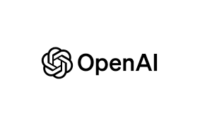The Financial Times (FT) and OpenAI have joined forces through a strategic partnership and licensing agreement. This collaboration aims to integrate the esteemed journalism of the FT into ChatGPT, while also pioneering the development of innovative AI products tailored for FT readers. However, amidst this groundbreaking alliance, concerns linger over OpenAI’s data-sourcing practices on the web.
Under the terms of the agreement, ChatGPT users will gain access to selected summaries, quotes, and rich links to FT articles, enhancing their browsing experience with relevant insights from top-tier journalism. Moreover, the FT has adopted ChatGPT Enterprise, offering its employees access to cutting-edge AI technology for increased productivity.
John Ridding, CEO of the FT Group, underscored the significance of this partnership, emphasizing its role in amplifying the value of the FT’s award-winning journalism and providing invaluable insights into AI-driven content dissemination. This collaboration comes at a critical juncture, as technology companies face scrutiny over their data acquisition methods, particularly regarding copyrighted material.
What led to the partnership between FT and OpenAI?
In recent years, OpenAI has encountered legal challenges and public backlash over its data-sourcing practices, prompting concerns about copyright infringement. Despite these controversies, OpenAI defends its approach, citing the transformative nature of its language models and asserting compliance with fair use principles.
Brad Lightcap, COO of OpenAI, expressed optimism about the partnership’s potential to empower news organizations and revolutionize the ChatGPT experience with real-time journalism. This collaboration marks the latest in a series of alliances between OpenAI and leading news publishers worldwide, signalling a paradigm shift in content dissemination.
While the financial terms of these partnerships remain undisclosed, they signify a pivotal moment in the evolution of AI-driven journalism. Ridding stressed the FT’s commitment to quality journalism and emphasized the need for safeguards to protect intellectual property rights amidst technological advancements.
As the FT embraces new technologies, Ridding reaffirmed the publication’s commitment to innovation while remaining vigilant against potential challenges. With AI poised to reshape the media landscape, the FT stands ready to navigate this transformative journey, guided by its steadfast dedication to journalistic integrity and excellence.
See also: Spotify AI’s Quest To Anticipate Your Musical Desires


















